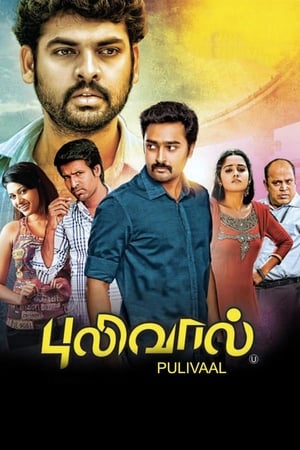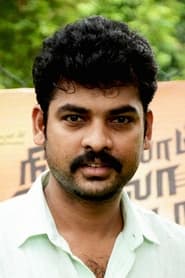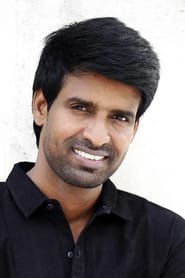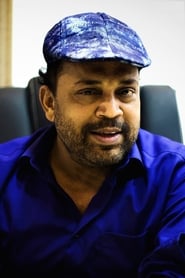Cast
View AllCrew
Director
- G. Marimuthu
Writer
- Sameer Thahir
Producer
- Radikaa Sarathkumar
- Listin Stephen
Reviews
timesofindia
The one question that we want to ask after walking out of Pulivaal is — why can't Tamil film directors make a thriller film without including pointless songs and annoying comedy tracks? This film, an official remake of the Malayalam film Chaappa Kurishu (which was inspired from the Korean thriller Handphone), is a cat-and-mouse thriller between two men who are neither good nor bad, just victims of circumstances. Initially, we think of the rich Karthik (Prasanna) as a playboy (he even is planning to dump his co-worker Monika and marrying Pavithra, the girl his parents have in mind for him) and our sympathies are all with Kasi (Vemal), who works in a departmental store. But, halfway through, we start empathizing with Karthik while Kasi becomes a person who is toying with him. These slightly grey characters, who are the film's protagonists, make Pulivaal mildly refreshing.
The film opens with a nicely-edited montage (TE Kishore is the editor) of their daily lives — Karthik selects from a bunch of newspapers, while Kasi takes a peek at the day's news at the tea shop; Karthik takes a shower in his luxurious bathroom while Kasi has to wait in queue at the public toilet and fetch water to take a bath; and so on. And, Karthik, not surprisingly, owns an iPhone while Kasi uses a phone that is bound together by a rubber band.
The mobile phone is what sets the plot in motion as Karthik's iPhone ends up in the possession of Kasi. And, it is important for Karthik to retrieve the phone because it holds a video of him having sex with his employee Monika. Kasi, who has taken the phone on an impulse, is guilty and decides to return it, but, before he can do so he realizes that he can use Karthik to get back at people who are mean to him — like the hostile Valliappan (an irritating Thambi Ramaiah), his store manager. He also doesn't know how to use the phone but, can Karthik track him down before someone learns of the phone's content?
This is definitely a juicy plot and in Vemal and Prasanna, Marimuthu has actors who look their parts. And, yet, he slips because he cannot nail the tone required for this subject. He devotes a rather large amount of time on trivial elements that hamper the story's flow — like Valliappan's romance with a co-worker (with Ilaiyaraaja's songs turning into BGMs), Soori's comedy (which is a compilation of many SMS jokes), and out-of-place songs (that are unimaginatively picturized). Every time something tense happens, the actions cuts to some of these mundane scenes and so, we never really get involved with the story. It is only in the final 30 minutes that the film shows some signs of sticking true to its genre but, by then, it is too late.
Jul 7, 2014
Thematic Analysis
Pulivaal represents a fascinating example of Comedy/Thriller cinema, offering viewers a unique perspective on the human experience and societal structures. The film's approach to its themes demonstrates a creative vision that distinguishes it within its genre.
Director G. Marimuthu brings their distinctive visual style to this film, continuing their exploration of themes seen in their previous works while adding new elements. Their approach to pacing and visual storytelling creates a viewing experience that rewards close attention.
Released in 2014, the film exists within a cultural context that continues to evolve with our understanding of its themes. Its reception demonstrates the diverse reactions to its artistic choices and its place in cinema history.
Did You Know?
- The production of Pulivaal took approximately 4 months from pre-production to final cut.
- The final cut of the film runs for 137 minutes, though the director's initial assembly was reportedly 196 minutes long.
- The costume department created over 404 unique costume pieces for the production.
- The screenplay went through 15 major revisions before the final shooting script was approved.
- Some visual effects sequences took up to 5 months to complete.
Historical Context
- In 2014, when this film is released:
- Political polarization was intensifying in many countries.
- Climate change awareness was becoming a central global concern.
- Streaming platforms were disrupting traditional distribution models and changing how audiences consumed films.
How This Film Stands Out
Details
- Release Date: February 7, 2014
- Runtime: 2h 17m
Where to Watch












